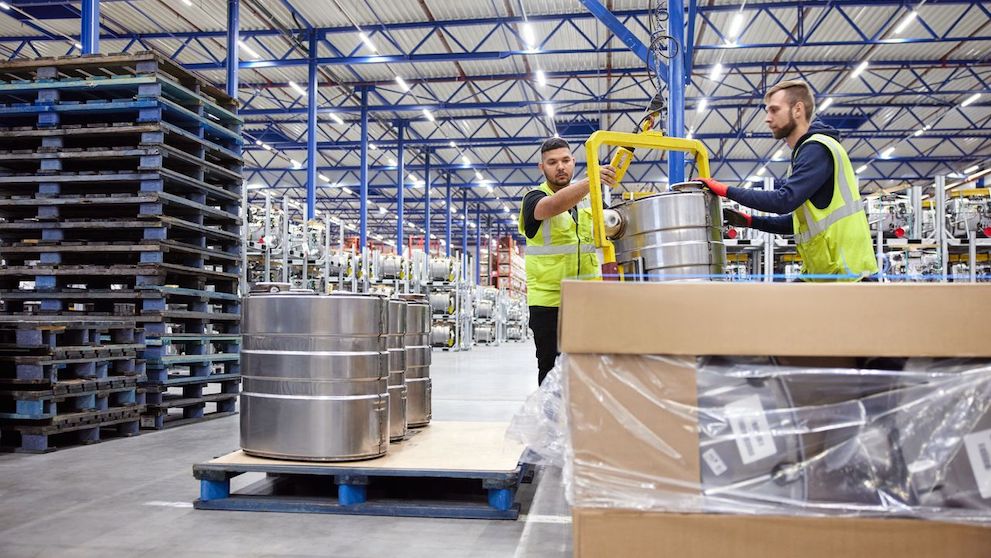Social commerce is the point where social media and e-commerce merge. Businesses of all sizes from internationally recognised brands to microenterprise sole proprietorships engage in e-commerce using social media platforms to sell their products and services.
Picture this: you’re scrolling through your social media feed only to find your attention swayed by a handmade aromatherapy candle or the latest shockproof laptop case by an indie designer. A couple of seamless clicks later, you’ve typed in your shipping address, made payment and eagerly anticipating delivery — all this while never leaving the social media platform you were on. If this sounds familiar, you’re one of the many social media consumers who engage in this customer journey of social commerce businesses.
Social commerce is gaining momentum across the globe. Some might even say social commerce is the future of e-commerce. As per Statista, the value of sales made through social media platforms worldwide were estimated at a total of US$560 billion in 2020 and it is projected to grow to US$2.9 trillion by 2026.
Global social commerce landscape
Social e-commerce is thriving on a global scale, particularly in countries where social media usage is high. While China has been at the forefront of social commerce, many customers around the world have made the transition to online shopping after the onset of the COVID-19 pandemic.
According to a study done by DHL Express, the world’s leading international express service provider, significant e-commerce growth acceleration is projected in both the B2C and B2B markets as the COVID-19 pandemic continues to drive digital transformation.
Similar insights of how e-commerce has grown two to five fold since the pre-pandemic era also points to the fact that social commerce is here to stay rather than just a trend that will soon fade out. Figuring out how you can overcome the economic barriers to going global can help you stay competitive.
Common social commerce platforms
Social commerce platforms offer up a winning combination of checkout and shopping integrations and tech-oriented consumer base. Millennial and Gen-Z consumers especially are social media savvy and gravitate towards user-generated and influencer content, making them the prime target audience for social commerce.
Facebook ranks top of the popular social commerce platforms, with Instagram and TikTok following close behind. Other platforms like Pinterest, Snapchat, WeChat and Verint are also favoured by relevant consumer segments.
As consumers continue to spend more time on social media, making social e-commerce part of their business model is a step in the right direction for many businesses. Understanding how to set up your social media e-commerce business is key to your success.
What makes social commerce attractive to online consumers
Some examples of social commerce include organic shoppable posts, shoppable ads, shoppable influencer content, in-app purchases via social media and media such as videos leading to e-commerce sites. The variety and ease-of-use of these social commerce options are a major hook for consumers.
In a world where content is king, content related shopping is of high value. Consumers value convenience above all, and being able to sell to them without disrupting their social media experience is a main priority. E-commerce via social media platforms removes many pain points of both online and brick-and-mortar shopping to make purchases and service engagements simple and smooth.
A fundamental aspect of choosing the right social media channels for businesses to drive e-commerce growth is working out which platforms their target audiences are on.
For example, Shopify has partnered with TikTok to enable merchants like yourself to add a shopping tab to yourTikTok For Business account. You Can then sync your product catalogue which links directly to your online store for checkout. With easier access to target audiences who can shop directly on TikTok, you can also make optimal use of DHL Express’ integration into Shopify for international shipping.
With DHL Express, the centralisation of all e-commerce activities on Shopify means you can pull out order details, shipment tracking codes and customer data easily in just a few clicks. In addition, you can also apply customised shipment options for specific products. This includes handling costs for products based on weight, so customers can anticipate the total costs of their orders. Your team can also conveniently edit and print shipment labels for these customised orders, manage shipment collection and delivery schedules based on your time-frames, and track the movement of orders across the supply chain to streamline manpower planning.
How businesses can benefit from social commerce
If part of the revenue earned by your business is through online sales, and you have a website or e-shop, the next step forward is to get onboard with social e-commerce to maximise the potential of this trend. Social media platforms have a massive reach and endless potential for monetisation. Any business that is looking to capitalise on the forward trend of social media commerce, can incorporate social media as one of their sales channels.
Choosing the right logistics partner is another crucial factor of selling on social commerce platforms. When a customer goes through the touchpoints unique to social media to make a purchase, they expect snappy, fuss-free deliveries to go along with it. Understanding customer expectations and meeting their needs is a surefire way to keep them coming back.
Social commerce business owners can offer personalised delivery service choices by taking advantage of DHL Express’ delivery and pick up options including Dedicated Pickup for timings outside of normal business hours, Saturday Pickup, Saturday Delivery and Same-Day Delivery.
Social e-commerce encourages a more engaging customer experience and in turn increases revenue. When your business and products or services are on the right platform where the eyeballs are, it removes friction, thereby boosting interactions and conversions.
Grow your social e-commerce business with DHL
Businesses venturing into social commerce have many potential opportunities considering the growth and forecast of social media usage and online shopping adaptation. Some key considerations of implementing a social media strategy include choosing a suitable social media platform, marketing tactics to execute such as adding call-to-actions to your social media posts and user-generated content and partnering with a reliable delivery partner.
As a leader in e-commerce logistics, DHL Express is evolving right alongside the social commerce upward trend. Distinguish your business from the rest with our customer-friendly shipping options like same day delivery service and ODD (On-Demand Delivery). We serve both B2C and B2B trade in over 220 countries, so you can be assured of optimal customer satisfaction in all market segments.
Explore how DHL Express can help you grow your social e-commerce business with seamless international express door-to-door shipping options to improve customer experience and retention. Sign up for a DHL Express business account to get started now.










































